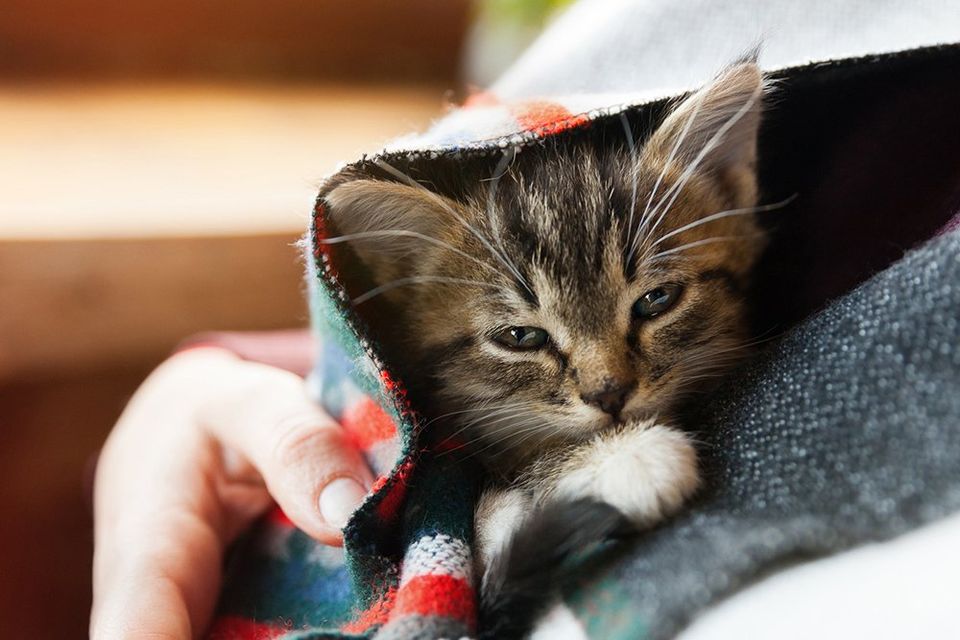Prepare for Your New Kitten's Comfort and Health
When you get a new kitten, you should immediately make plans to keep him or her in good health. Kittens require vaccinations at specific intervals as well as other health assessments as they grow. Here are some things you should have in place when you get your new kitten and what your veterinarian will check during your kitten's first examination.
Your New Kitten's Essential Supplies
Before your kitten even steps into your home, you'll want to have everything you need to keep your kitten healthy, comfortable, and protected from getting hurt. Here is a list of essential items for your kitten.
Litter Box and Litter
Make sure your kitten has a litter box that is easy to climb
in and out of, and ensure they know where it is located. If your kitten is
restricted to only one area, then keep the litter box close by until they are
old enough to move about more freely.
Food and Water Bowl
The food and water bowl should both be shallow enough so that they can reach the food but not large enough for them to play in them. Place a mat underneath the bowls to guard against spills.
Food Appropriate for Kittens
Kittens have different nutritional requirements than adult cats to accommodate their growing bodies and energy levels. Kitten-specific dry food also often contains smaller kibbles that are easier for small mouths to eat.
Parasite Medications and Treatments
Choose kitten-appropriate flea, heartworm, and tapeworm medications. Read the package carefully and look at the age-related dosage levels. Use the proper dosage for your kitten's age and size. If your kitten is very young, then see a veterinarian before you treat for parasites.
Toys
Kittens need toys to chew, especially as their adult teeth erupt. Plus, toys keep kittens from getting bored. Always supervise your kitten with any toys that have strings and small parts that could harm them.
Pet Carrier
A loose kitten in your car is not safe for either you or your kitten. Your kitten could be hurt if they crawl under the foot pedals or even under the seat. You also need a carrier if you ride public transportation.
Your New Kitten's First Health Exam
As soon as you get your kitten settled, bring them in to a veterinarian for a general exam. And remember to bring along any health records that you have received when you adopted your kitten. Your kitten's first exam will likely consist of the following checks:
- A teeth check to ensure that all the kitten teeth are in good health and have erupted normally
- An anus and genital area check for any abnormalities that may cause problems later
- A temperature check to see if your kitten has a fever that could indicate an illness or infection
- A heart and lung check to ensure their proper functions
- An abdomen check for any signs of bloating, organ problems, or hernias
- An eye and ear check to look for any signs of vision and hearing problems as well as ear mites
If necessary, your veterinarian might also perform laboratory tests, such as a blood test, to check for feline leukemia virus or feline immunodeficiency virus, or a fecal test for parasites. At this time, you should also make plans to spay and neuter your kitten if that has not already been done.
A new kitten takes planning and preparation. When you take your kitten to the veterinarian, be sure to ask about a care plan and schedule. When you are ready to bring your kitten in for his or her first checkup, Alta Vista Veterinary Clinicshould be your first choice. Call us today to set up an appointment for a kitten wellness exam.








